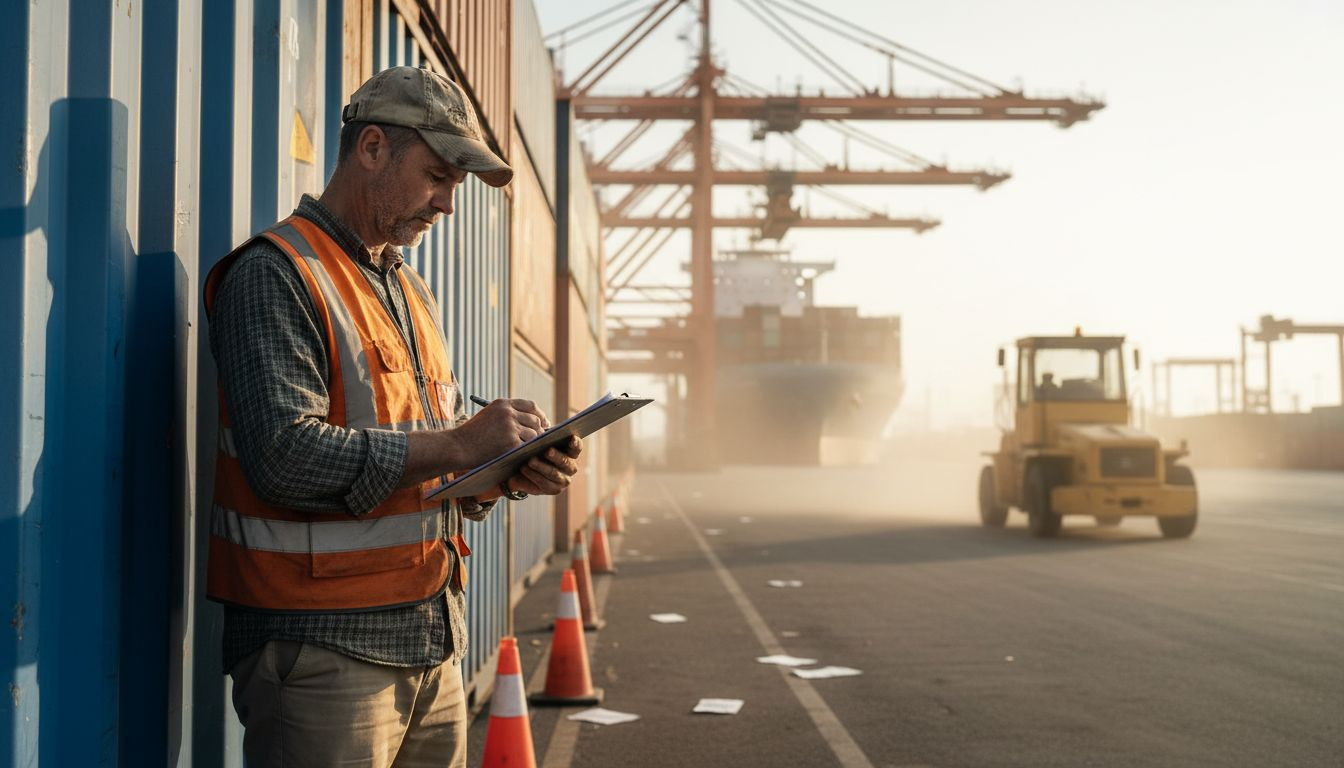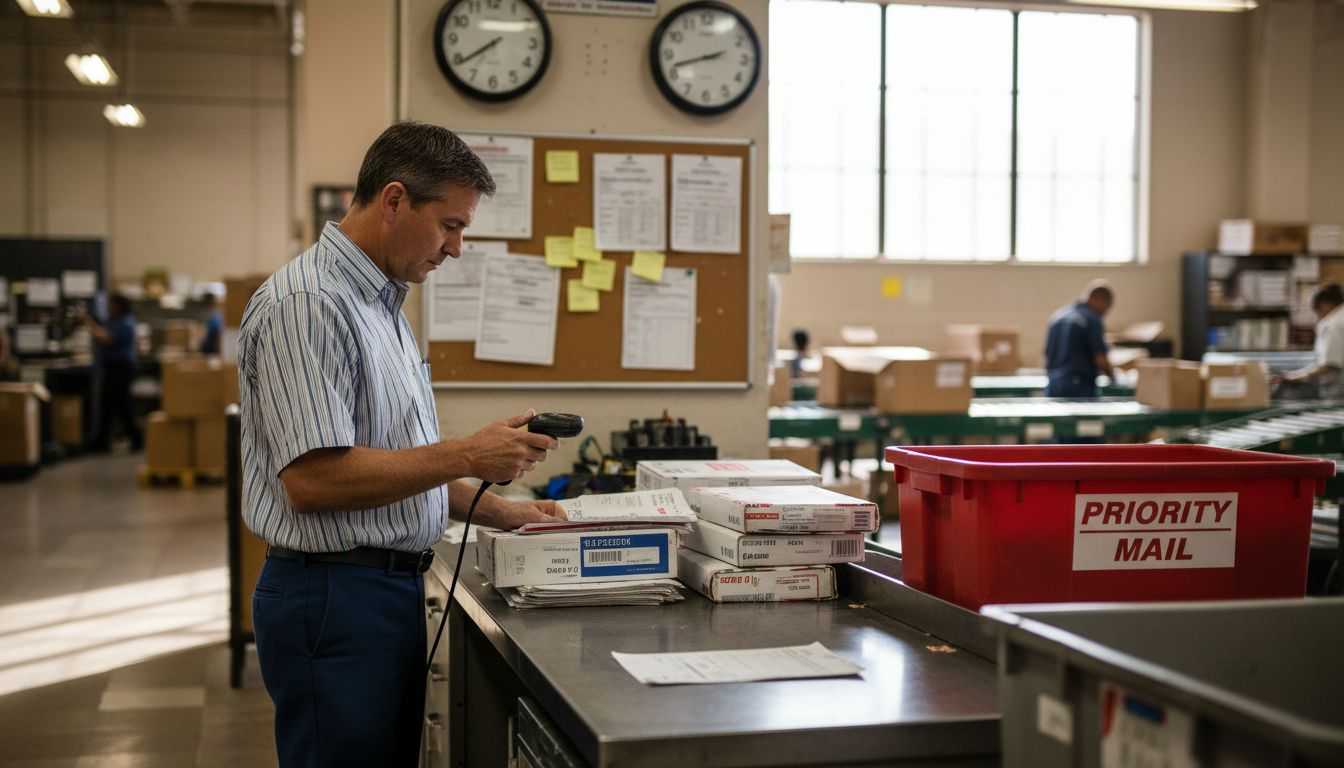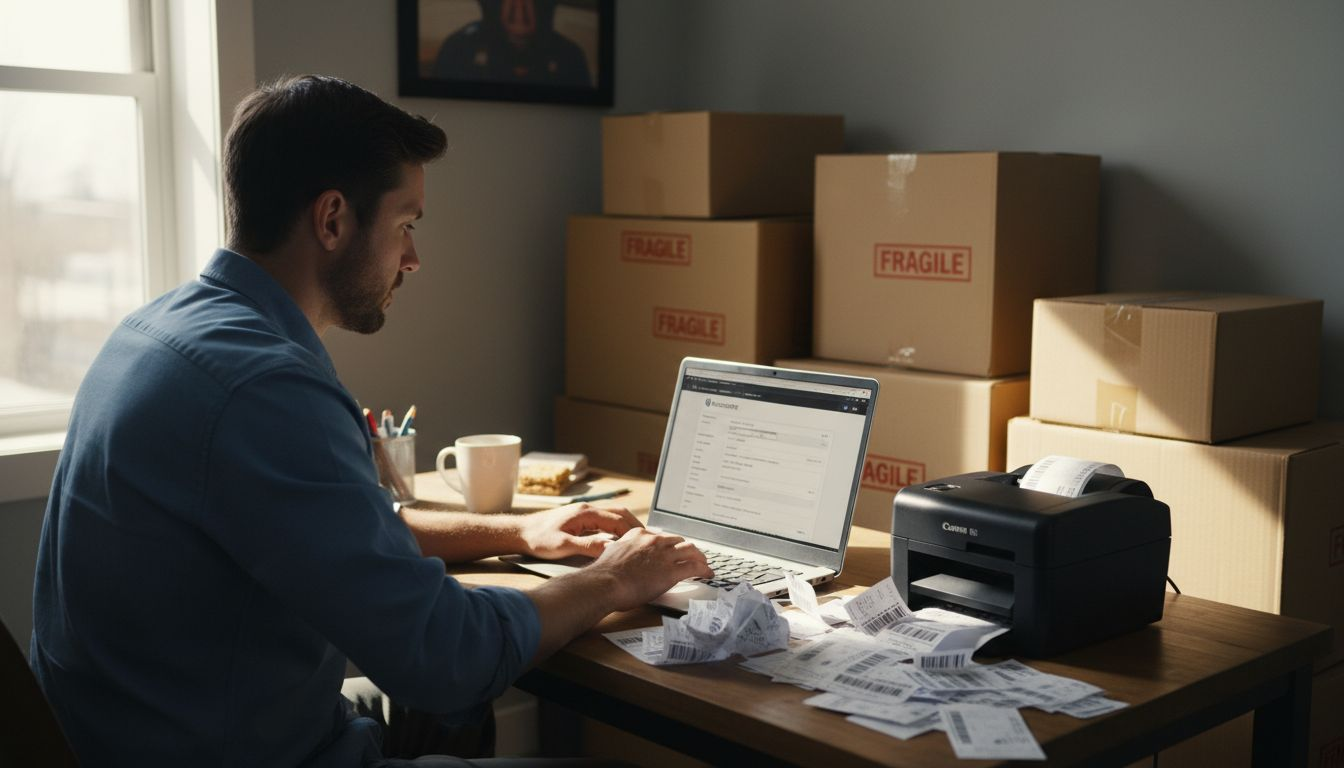Did you know that over $3 trillion worth of goods are imported into the United States each year? Managing this massive flow means strict rules, endless paperwork, and high stakes for businesses of any size. Without expert help, a single mistake can lead to costly delays or fines. Discover how customs brokers protect your shipments, guide you through complex rules, and help you succeed in the challenging world of global trade.
Table of Contents
- What Does A Customs Broker Do For Importers?
- How Do Customs Brokers Ensure Compliance?
- What Documents Do Customs Brokers Handle?
- How Can A Customs Broker Save You Time And Money?
- When Should You Hire A Customs Broker?
- What Are The Costs Involved In Using A Customs Broker?
- How To Choose The Right Customs Broker For Your Business?
Quick Summary
| Takeaway | Explanation |
|---|---|
| 1. Customs brokers simplify import processes. | They navigate complex regulations to ensure smooth customs clearance for your goods. |
| 2. Compliance is crucial for avoiding penalties. | Brokers verify documentation to prevent errors that could lead to costly legal issues. |
| 3. Accurate documentation is essential for success. | Brokers handle important paperwork, ensuring accuracy and compliance to facilitate international trade. |
| 4. Time and cost savings are significant. | Using a customs broker can reduce processing times and help avoid overpayment of duties. |
| 5. Choosing the right broker is vital. | Consider expertise, compliance record, and communication skills when selecting a customs broker. |
1. What Does a Customs Broker Do for Importers?
A customs broker serves as your essential navigator through the complex world of international trade regulations and import procedures. Think of them as your professional guide who transforms complicated customs clearance from a potential nightmare into a smooth, manageable process.
At its core, a customs broker acts as an expert intermediary between your business and U.S. Customs and Border Protection (CBP). According to official CBP guidelines, these licensed professionals prepare and submit all required documentation and payments needed to legally bring your goods into the country. Their role goes far beyond simple paperwork filing.
Key Responsibilities of a Customs Broker:
- Accurately classify imported goods according to complex tariff schedules
- Calculate precise duty rates and taxes for your shipments
- Ensure full compliance with ever changing import regulations
- Submit official entry documents to government authorities
- Track and monitor your international shipments
What makes customs brokers truly valuable is their deep understanding of intricate import rules. They stay current on regulatory changes, helping you avoid costly mistakes that could result in shipment delays, fines, or potential legal issues. For businesses engaged in international trade, a skilled customs broker can mean the difference between smooth operations and logistical headaches.
Learn more about navigating import procedures in our guide on understanding customs import brokers. Their expertise transforms complex international shipping challenges into streamlined, manageable transactions that keep your supply chain moving efficiently.
2. How Do Customs Brokers Ensure Compliance?
Compliance is the invisible shield that protects your business from costly penalties and potential legal complications in international trade. Customs brokers are your frontline defense in navigating the intricate web of import regulations with precision and expertise.
At the heart of compliance is a rigorous process of verification and documentation. According to federal regulations under 19 C.F.R. § 111, customs brokers must exercise extraordinary due diligence in every aspect of import procedures. This means they meticulously review and validate every piece of import data to ensure absolute accuracy.
Key Compliance Strategies Used by Customs Brokers:
- Thoroughly validate all import documentation
- Identify and correct potential compliance issues before submission
- Maintain comprehensive records for potential audits
- Guide correct product classification and valuation
- Ensure adherence to current trade agreement requirements
What sets professional customs brokers apart is their proactive approach to potential regulatory challenges. They do not merely react to issues they anticipate and prevent them. This includes maintaining detailed records that can be produced within 30 days of any government request and reporting any potential breaches within 72 hours.
For businesses looking to understand the nuances of international trade regulations, our guide on international trade compliance basics offers deeper insights into navigating these complex requirements. By partnering with a skilled customs broker, you transform potential regulatory risks into a streamlined import process.
3. What Documents Do Customs Brokers Handle?
The world of international trade is a complex paper trail where documentation can make or break your import success. Customs brokers are the master navigators of this intricate document landscape ensuring your shipments move smoothly across borders.
These professionals handle an extensive range of critical paperwork that goes far beyond simple form filing. According to industry sources, customs brokers meticulously prepare, submit, and maintain documents that are essential for legal and compliant international trade.
Key Documents Managed by Customs Brokers:
- Commercial invoices detailing product specifications and value
- Comprehensive packing lists
- Bills of lading tracking shipment transportation
- Import and export licenses
- Certificates of origin
- USDA inspection certificates
- Powers of attorney
What many importers do not realize is that these documents require more than just basic completion. Customs brokers ensure each document is precisely accurate, fully compliant, and strategically organized. They maintain both physical and electronic records typically for a five year period to support potential future audits or inspections.
For businesses looking to dive deeper into shipping documentation requirements, our guide on export shipping documentation provides comprehensive insights into navigating these complex paperwork challenges. By understanding the critical role of documentation, you can transform potential logistical headaches into smooth international trade operations.
4. How Can a Customs Broker Save You Time and Money?
In the intricate world of international trade, time and money are your most precious resources. A skilled customs broker acts like a financial and logistical Swiss Army knife turning potential import complications into streamlined opportunities for your business.
The financial benefits of working with a customs broker extend far beyond simple paperwork management. According to industry research, these professionals help importers navigate complex tariff regimes and dramatically reduce operational overhead. In a roughly $5 billion industry, brokers have become essential partners for businesses seeking efficient cross border trade.
Key Ways Customs Brokers Generate Savings:
- Reduce import clearance processing times
- Accurately calculate duties to prevent overpayment
- Help recover potential duty drawbacks
- Minimize compliance risk and potential penalties
- Free up internal resources for core business operations
Small and medium importers especially benefit from these services. By handling intricate regulatory requirements and complex filing processes, customs brokers allow your team to focus on what you do best growing your core business. The strategic value lies in transforming administrative burdens into smooth, cost effective logistics.
For businesses looking to understand the nuanced role of logistics professionals, our guide on customs broker services offers deeper insights into maximizing your import efficiency. Think of a customs broker as an investment that pays dividends through reduced complexity and increased operational agility.
5. When Should You Hire a Customs Broker?
Navigation through international trade regulations can feel like sailing through a storm with no compass. For many businesses, a customs broker becomes that critical navigational tool ensuring you do not run aground on regulatory complexities.
While hiring a customs broker is not legally mandatory, it becomes increasingly crucial depending on your import experience and operational complexity. According to U.S. Customs and Border Protection, even when using a broker, the importer remains ultimately responsible for entry documentation accuracy.
Key Scenarios Signaling You Need a Customs Broker:
- First time importing products internationally
- Dealing with complex or regulated product categories
- Shipping goods with intricate classification requirements
- Managing high volume or frequent international shipments
- Operating in industries with strict compliance standards
Think of a customs broker as a strategic partner who translates the complex language of international trade into actionable steps for your business. They provide critical expertise that can prevent costly mistakes and streamline your import processes. Particularly for small to medium businesses without dedicated global trade departments, a broker can be the difference between smooth operations and potential regulatory headaches.
For businesses seeking to understand the nuanced role of customs professionals, our guide on finding the right customs broker offers comprehensive insights into making an informed selection. Your goal is not just compliance but creating a seamless international trade strategy.
6. What Are the Costs Involved in Using a Customs Broker?
Understanding the financial landscape of customs brokerage can feel like navigating a complex maze of fees and pricing structures. The cost of using a customs broker is not a one size fits all proposition but a nuanced calculation based on your specific import needs.
Recent industry research indicates that brokerage services have become increasingly sophisticated with corresponding price adjustments. According to reports, independent brokers have raised fees by $1–$5 per product code, while larger logistics firms like UPS and FedEx have implemented rate increases up to 4 percent.
Typical Customs Broker Fee Structures:
- Fixed rate per shipment
- Percentage of shipment value
- Per product code pricing
- Comprehensive service packages
- Duty payment and reimbursement models
The investment in a customs broker should be viewed through a strategic lens. While there are upfront costs, the potential savings from avoiding compliance errors, reducing processing times, and preventing potential penalties can far outweigh the initial expenses. Smaller importers especially can benefit from the expertise and efficiency a professional broker provides.
For businesses seeking a deeper understanding of the financial aspects of international shipping, our guide on international shipping costs offers comprehensive insights into managing your import budget effectively. Remember that the right broker is not an expense but a strategic partner in your global trade operations.
7. How to Choose the Right Customs Broker for Your Business?
Selecting the right customs broker is like choosing a critical business partner who will navigate the complex waters of international trade on your behalf. Your choice can mean the difference between smooth import operations and potential regulatory nightmares.
According to U.S. Customs and Border Protection recommendations, finding a broker requires careful consideration beyond basic licensing. The ideal broker should not just process paperwork but serve as a strategic partner understanding the nuanced landscape of your specific industry and import needs.
Key Criteria for Selecting a Customs Broker:
- Proven expertise in your specific commodity sector
- Strong track record of compliance and audit readiness
- Robust communication with customs authorities
- Advanced classification and valuation capabilities
- Demonstrated understanding of relevant trade agreements
- Technological infrastructure for efficient tracking
Do not make the mistake of viewing a customs broker as a transactional service provider. They are strategic partners who can provide critical insights into optimizing your import processes, reducing potential risks, and ensuring seamless cross border transactions. Their expertise becomes particularly crucial when dealing with complex or regulated product categories.
For businesses seeking comprehensive insights into international trade logistics, our guide on understanding customs clearance services offers additional perspectives on making an informed selection. Your goal is finding a broker who transforms regulatory complexity into a competitive advantage for your business.
Below is a comprehensive table summarizing the roles, benefits, and strategies of customs brokers as discussed in the article.
| Aspect | Description | Benefits/Outcomes |
|---|---|---|
| Roles of Customs Brokers | Act as intermediaries with CBP, handle documentation and payments, classify goods, and track shipments. | Smooth customs clearance, compliance with import regulations, avoiding fines. |
| Ensuring Compliance | Validate documents, correct issues pre-submission, maintain records, and guide on classification. | Minimizes risk of penalties, accurate documentation, regulatory readiness. |
| Document Handling | Manage commercial invoices, packing lists, bills of lading, licenses, and certificates. | Ensures legal, compliant trade, supports audits, accurate and organized records. |
| Cost Savings | Reduce clearance times, calculate duties, recover duty drawbacks, and minimize penalties. | Optimized import efficiency, reduced overhead, freed resources. |
| Deciding to Hire | Crucial for first-time importers, regulated products, complex classifications, and frequent shipments. | Prevents costly errors, enhances process efficiency, strategic partnership. |
| Fee Structures | Fixed rates, percentage of value, product code pricing, comprehensive packages. | Strategic investment with potential long-term savings. |
| Choosing a Broker | Expertise in sector, compliance track record, strong communication, advanced capabilities. | Operational success, informed strategic decisions, competitive advantage. |
Simplify Your International Trade with Expert Customs Brokerage
Facing the complex regulations and paperwork around importing goods can be overwhelming. This article highlights how customs brokers are vital partners to ensure accuracy, compliance, and timely clearance. If you are looking to avoid costly delays, misclassifications, or penalties, understanding this process is the first step to smooth cross-border shipping.
Worldwide Express, Inc. offers specialized customs brokerage services designed to alleviate these challenges. Our team expertly handles documentation, duty calculations, and compliance so you can focus on growing your business with confidence. Learn how to transform regulatory hurdles into a competitive advantage with our trusted solutions.

Discover tailored logistics and customs support by exploring the Uncategorized – Worldwide Express, Inc. section. Take the next step toward stress-free imports by visiting Worldwide Express, Inc. today. Connect with us now and experience true peace of mind in your international shipping journey.
Frequently Asked Questions
What are the key responsibilities of a customs broker for importers?
A customs broker is responsible for classifying imported goods, calculating duty rates, ensuring compliance with regulations, and submitting entry documents. To make the most of their services, prepare to provide detailed product information and maintain open communication regarding your shipment needs.
How can a customs broker help ensure compliance with import regulations?
Customs brokers ensure compliance by thoroughly validating documentation, correcting potential issues before submission, and keeping comprehensive records for audits. To avoid costly penalties, collaborate with your broker by providing accurate information and promptly addressing any compliance queries.
What documents do customs brokers manage during the import process?
Customs brokers handle crucial documents like commercial invoices, bills of lading, and import licenses. Ensure you gather all necessary product specifications and value details for your broker to streamline the documentation process effectively.
When should an importer consider hiring a customs broker?
Importers should consider hiring a customs broker when dealing with complex product regulations, first-time imports, or frequent international shipments. If you fit any of these scenarios, consult with a broker to ensure smooth navigation through import procedures.
How can working with a customs broker save me time and money?
A customs broker can save you time by reducing clearance processing times and help you avoid overpayment of duties. Make it a priority to track these savings and performance improvements over a few shipments to see how much efficiency you gain.
What criteria should I use to choose the right customs broker?
Choose a customs broker based on their expertise in your commodity sector, compliance track record, and ability to communicate effectively with customs authorities. Create a checklist of your specific needs and use it to guide your broker search for the best fit.
Recommended
- Understanding the Role of a Customs Import Broker – Worldwide Express, Inc.
- Understanding Customs Broker Near Me: What You Need to Know – Worldwide Express, Inc.
- Understanding Customs Broker vs Freight Forwarder – Worldwide Express, Inc.
- Understanding Customs Clearance Companies and Their Role – Worldwide Express, Inc.
- Wat is customs clearance? Begrijp het proces en belang – Send with Parcel International
- Essential Guide to Preparing for International Shipping 2025 | Schott Removals






